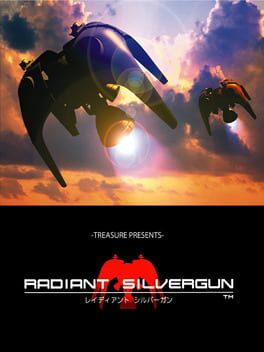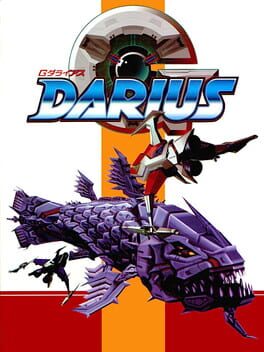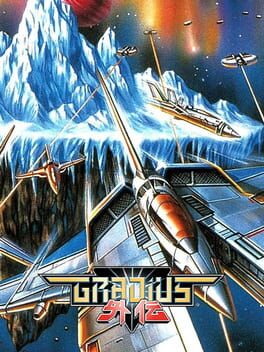LobbyDob
videogames sure are a thing huh
I've logged most games that I have played since 2013. I'm not very talkative online but feel free to reach out to me.
See also: https://letterboxd.com/LobbyDob/
https://www.youtube.com/channel/UCJxhOPbqXD3KDw_D3aXN7HQ
https://anilist.co/user/LobbyDob/
Badges

Famous
Gained 100+ followers

GOTY '23
Participated in the 2023 Game of the Year Event

Treasured
Gained 750+ total review likes

Pinged
Mentioned by another user

Shreked
Found the secret ogre page

Listed
Created 10+ public lists

Adored
Gained 300+ total review likes

Trend Setter
Gained 50+ followers

Gone Gold
Received 5+ likes on a review while featured on the front page

3 Years of Service
Being part of the Backloggd community for 3 years

Best Friends
Become mutual friends with at least 3 others

Donor
Liked 50+ reviews / lists

GOTY '21
Participated in the 2021 Game of the Year Event

Elite Gamer
Played 500+ games

Loved
Gained 100+ total review likes

Popular
Gained 15+ followers

Well Written
Gained 10+ likes on a single review

Gamer
Played 250+ games

Liked
Gained 10+ total review likes

Noticed
Gained 3+ followers

N00b
Played 100+ games
Favorite Games
641
Total Games Played
000
Played in 2024
000
Games Backloggd
Recently Reviewed See More
Holo X Break is the latest game from KayAnimate, of Holocure fame. Just like Holocure, Holobreak has very high presentational quality for a free fangame, perhaps even more so than Holocure. The pixel art throughout the game is beautiful and some of the music really goes hard. There's a bunch of love for the Hololive franchise here with a bunch of nice attention to detail and references that fans will enjoy.
Unfortunately, whereas Holocure was actually really quite good as an actual game (at least for Survivorlike standards), HoloBreak doesn't manage to get the fundamentals of the beat-em-up/belt scroller genre right. The player characters have nothing but a dodge roll, a basic 4-hit auto-combo, a couple of cooldown abilities and a super move that charges up very slowly so don't expect to use it more than once or twice per stage. The dodge roll can't even be used to cancel out of attack recovery animations (which can be over a second for even basic attacks), charge attacks and cooldown abilities can only be charged while stationary, and a lot of characters have no real crowd control options. This leaves the player character feeling clunky and fundamentally weak, incapable of reliably dealing with the later stage enemies and boss fights.
How does Holobreak remedy this? Ideally it would be through having better fundamental game balance or more interesting character movesets, but instead the fundamental weakness of the player character is addressed through ugh... a bunch of tacked on RPG-style mechanics. Levelling, character stats, consumable items, recruitable party member npcs, equipment, equipment upgrades, random equipment drops and probably some other stuff I've forgotten. Although having a good build can make the game more fun (and a LOT easier), none of these mechanics really feel at home in a beat-em-up game. The randomness of item collection also makes your success a lot more RNG-reliant than it reasonably has any right to be.
I don't even think RPG-mechanics in arcadey action games are inherently a bad thing either. Phantom Breaker: Battle Grounds is a similar anime-girl pixel-art beat-em-up game with a lot of RPG progression, but that game is great due to its wealth of interesting character movesets, level design and combo potential.
On the whole, Holo X Break is still ok, especially for a free game - it won't hurt to at least give this game a shot if you're at all interested in hololive, but after Holocure, I can't help but feel a bit disappointed.
Although this sounds weird, Signalis heavily reminds me of Zero Ranger, despite these being two games in completely different genres. Both are indie darlings that also happen to be incredibly derivative - so much that they almost feel like some kind of crossover fanfiction at points, but despite this, they execute their central ideas well enough to remain fresh and original.
What's so derivative about Signalis you may ask? Well, most of the gameplay mechanics evoke classic Resident Evil, the thematic storytelling is a mishmash of Silent Hill and NGE, and this game's visual direction thing of regular jump-cuts to large block Kanji (AKSHULLY, it's Hanzi in this case) against monochromatic backgrounds is basically one big long-running Monogatari reference. Somehow these conflicting inspirational elements manage to work, even if it gives the impression of Signalis being less cohesive than it could be otherwise.
I previously mentioned the focus on exploration and resource management, and yeah for the most part it's done well here. A common complaint I'm seeing is about the restrictive six-item inventory limit, but I didn't really have a problem with it in my 9.5 hour playthrough. It may be because I did my first playthrough of Resi 1 with Chris Redfield (bruh) so I'm used to this kind of restriction, but I suspect it might have more to do with the fact that the inventory restriction genuinely doesn't feel as painful here as it does in classic resi games.
For better and for worse, you're never far away from where you need to be to use an item you just found, and most items are one-use before being cleared from your inventory. Additionally, sneaking past enemies is super viable here due to the generally slow enemy attacks and wide corridors, meaning that much of the time I didn't even need to carry a weapon either.
Overall though I liked the restraint that Signalis shows in its gameplay. It's a very pure experience with good gameplay density - not bogged down with any pointless upgrade systems or tacked-on RPG mechanics. Even the first-person walking sim sections felt pretty good at respecting your time.
In true classic survival horror fashion, there are many puzzles in Signalis you must complete in order to progress. These puzzles are generally solid, doing a good job of establishing an internal logic that isn't too obtuse for the player to follow but also just complex enough to feel rewarding to figure out. I especially liked the puzzles which utilise the radio frequency mechanic, which involved a lot of creative applications.
Unfortunately the exploration between these puzzles is quite lacking. The level design is far from the best this genre has to offer. There's little in the way of circular design that expands upon itself to make backtracking satisfying - for the most part you'll be exploring isolated floors of corridors with little else to spice things up. The key hunting can be incredibly transparent too, with there being some times where you just find a key to open a door to find another key with nothing else in between. As a side note, there were also some encounters that would have been better as a unique one-off, such as the "radio battle" against infected Kolibri units. I was really impressed the first time I saw one of these but by the fourth or fifth time the novelty wore off and it felt tedious to fight them, especially with other enemies poking at you simultaneously.
Admittedly I wasn't paying too much attention to the story, so I'm not gonna give a deep dive by any means here, but the vibes of the storytelling were on point. I loved the worldbuilding of this dystopian sci-fi settting built upon a mysterious "bioresonance" technology, the distinction between the different Replika units is great, and I liked the undeniable lesbianism between the main characters. The communication of the finer details of the narrative are obtuse for their own sake (if I was being cynical, one could call it "video-essay bait"), and this kind of storytelling approach via disconnected, wishy-washy lines of poetry usually doesn't do it for me, but like I said, the vibes are on point.







